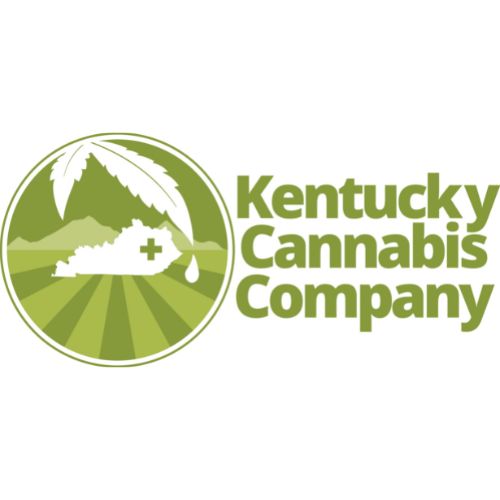As most of our loyal Kentucky Cannabis customers know, the highest amount of allowed THC in all hemp varieties (including fiber, hempcrete, hemp proteins, hemp seeds, and CBD products) is .3%. Before the 1930’s, Kentucky was one of the leading hemp suppliers for the US due to the state’s exceptional growing conditions: providing rich soil and a desirable climate. Under the Marijuana Tax Act of 1937, the possession or transfer of marijuana was made illegal throughout the United States under federal law, excluding medical and industrial uses, through imposition of an excise tax on all sales of hemp. In 1970, The Federal Controlled Substances Act further outlawed any cannabis use (medical or otherwise) within the United States. This statute categorized all forms of cannabis as a Schedule 1 drug, which defines a substance as highly addictive, lacking accepted medical use, and a high potential for abuse.
Hope was Given.
When the 2014 Farm Bill was introduced, however, hemp was officially back on the list of legal Kentucky crops–but not without strict regulation. It wasn’t until the 2018 Farm Bill, also known as The Agricultural Improvement Act of 2018, that a distinction between hemp and marijuana was made, no longer confining hemp to studies and pre-approved pilot programs.
After the legal distinction between hemp and marijuana was made, some forms of cannabis were removed from the Schedule 1 drug list–hemp being one of them. Hemp was then defined as cannabis with less than 0.3% THC and marijuana was defined as cannabis containing more than the legal 0.3% THC requirement. But where did this, seemingly both random and minuscule, number come from? Back in 1976, research botanist Dr. Ernest Small, published his co-authored work A Practical and Natural Taxonomy for Cannabis. Unknowingly, his scientific assessment, which separated hemp and marijuana by percent of THC content, would be used as a legal measure to define cannabis to this day.
This arbitrary number of .3% THC was chosen by a scientist who has since publicly admitted that he had no intention of setting the legal standard based on his findings. In our opinion, this classification should be determined by the dominant cannabinoid present in said plant. For example, if a plant is predominantly made of CBD, it should be classified as hemp; if a plant predominantly contains THC over all other cannabinoids, then it should be classified as marijuana. Most of the United States has pro THC laws. Over 36 states have laws about THC usage.
Need more Leadership at the state level.
In December of 2020, Senator Rand Paul proposed the Hemp Economic Mobilization Plan (HEMP) Act in order to both mitigate the unnecessary restrictions surrounding the hemp industry, and to give those who work in the industry a better sense of security within their trade. This legislation would also mean that the required testing to determine THC levels would occur on the final product. Currently, these tests are done on the plant itself, before the extraction process can turn it into CBD for public consumption. This act, alone, would give farmers peace of mind when it comes to the legality surrounding the cultivation of their crops.
In addition to this sense of security for farmers, both processors and transporters would also find protection from shipping concerns: currently, in order to maintain the ability to legally ship across state lines, products must remain under the .3% THC limit. The HEMP Act also proposed that hemp shipments would be required to contain a copy of the seed certificate, proving its 1% THC makeup.
Following the HEMP Act of 2020, Kentucky Cannabis Company has continued to push for a change in the legalization of better hemp farming regulations. As a part of our hemp advocacy promise, for the well-being of both farmers and consumers, Kentucky Cannabis Company partnered with Kentucky Senator Adrienne Southworth to increase the allowed amount of THC in hemp products. Known as Senate Bill 113, this bill proposes an increase from .3% THC to 1% THC allowed in Kentucky crops.
We support 1% hemp
Since our inception back in 2014, Kentucky Cannabis Company has been advocating for this adjustment in hopes to help protect farmers from crop destruction, should their harvest contain more than trace amounts of THC–which naturally occur in hemp varieties today. We at Kentucky Cannabis Company have seen, firsthand, the repercussions of not adhering to the strict and irrational confines of hemp legislation, having to watch as our beloved crops were burned back in 2017. This is one of the many reasons that we push for increasing the allowable THC in the field. By loosening the restrictions in the field and enforcing the allowable amount of .3% THC in end product will give our farmers peace of mind.
As a leading CBD oil manufacturer, Kentucky Cannabis Company advocates for an increase of allowable THC from .3% to 1% because growing 1% THC in the fields allows for better hemp varieties, as well as increased tertiary cannabinoids and terpenes–which will ultimately increase the possibilities of benefits seen in consumers. Not only will this change allow for our daughter company, Bluegrass Hemp Oil, to create a more therapeutic product for consumers, but it will also surely expand public knowledge of the multiple and multifaceted benefits this plant provides. With the lessening of legal restrictions surrounding the cannabis industry, more in-depth and controversial research can be conducted, therefore, more knowledge can be obtained.
Not only this, but the increase in allowable THC will reduce the loss of investment for our farmers. Licenses, labor, and equipment are all expensive necessities in the cannabis cultivation industry, and without guarantee on return, we can’t expect farmers to invest their time and effort into making the best possible product.
There are still many restrictions surrounding the cannabis industry within the great state of Kentucky. Kentucky Cannabis Company strives to advocate for the cannabis industry, for the benefit of farmers (like us) and consumers (like us, too) so that everyone can live in a world where the therapeutic benefits of the cannabis plant are free of legal repercussion.


Recent Comments